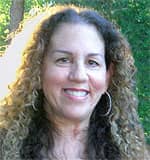An exclusive interview with a private practice owner explores the necessity of continuing education to his practice, and its critical role in achieving success in an evolving healthcare arena.
In this changing world of healthcare, it is refreshing and encouraging to cross paths with an individual who has made a difference in private practice patient care. One such individual I have had the pleasure of watching grow and positively impact the physical therapy profession is Eric Krell, PT, DPT, BScPT, MTC. Krell graduated from Southwest Baptist University in 1995 with a bachelor’s degree in physical therapy, and earned his Certification in Manual Therapy (MTC) in 2003 and his Doctor of Physical Therapy in 2011 at the University of St. Augustine for Health Sciences (USA). He has since been accepted into the Orthopaedic Manual Physical Therapy Fellowship program at USA in his pursuit to become a Fellow of the American Academy of Orthopaedic Manual Physical Therapists (AAOMPT). In addition, he is specially trained in vestibular rehabilitation, enabling him to evaluate and treat dysfunctions of the inner ear and brain that lead to vertigo. His contributions to the profession of physical therapy earned him the 2014 Distance Education and Training Council (DETC) Famous Alumni award. He co-founded the Physical Therapy Action Committee of Colorado, PTAC-CO, in an effort to help advance the profession of physical therapy alongside the CAPTA and APTA’s Vision 2020. Upon arriving in Colorado in 2003, Krell identified the unique patient population who had the drive to recover after injury and return to their active area lifestyles, and began the path to private practice with the opening of Rocky Mountain Spine and Sport in Lone Tree, Colo. He is currently co-owner of several Denver area clinics specializing in orthopedics, sports, and manual physical therapy. Krell shares his thoughts about several key issues in healthcare and business, and provides insight regarding continuing education, lifelong learning, today’s economy, and growing a successful business: Lori Hankins: Healthcare in today’s world is ever changing. As a private practice owner and clinician, what would you say has been the most impactful healthcare change that has had the most effect on your business? Eric Krell: This is a tough one, because there have been so many changes since I started practicing in 1996. Back then, the reimbursement system was “fee for service,” then in the late 90s, HMOs ruled reimbursement, which really altered not only business practice but clinical practice as well. Looking at our profession and private practice specifically, I would say Direct Access has had the biggest impact on my business. Most states have some form of Direct Access, but Colorado, where my practice is, has the purest form of it. We (PTs) are no longer bound by a prescription or, as we called it in the 1990s, “orders” to treat and get paid. We are finally being recognized by physicians and the community as the specialists in rehabilitation and movement science that we deserve. Hankins: What advice would you offer to PTs, OTs, and other healthcare professionals regarding starting their own business in this ever-changing economy? Krell: The best advice I could give is to have a business strategic plan, find a mentor and/or business consultant who can help you with your business structure, and constantly analyze your performance metrics. You also must be willing to make tough decisions, and give up some of your free time to make it work. If it were easy, everyone would do it. Hankins: How important has education been in your career? Have there been challenges? Krell: Education has been very important in my professional career. When I graduated PT school, most programs were bachelor degrees and in the process of changing to master’s degrees. By the late 1990s, most physical therapy programs were master’s degree programs in the process of changing over to doctoral programs. Although I had taken many continuing education courses, including earning my Manual Therapy Certification, I felt like my primary degree was “out of date.” I debated for years about whether to get my transitional Doctor of Physical Therapy. I finally decided that I needed to go back to school to earn the tDPT and support Vision 2020. There have always been challenges to continuing education, mostly in my personal life. Having a growing private practice, treating full time, and raising three children make studying, writing case studies, reading research, and taking exams very challenging. I had to have a higher level of mental and physical toughness to continue my education later in my career. A well-organized distance program, as well as flexible and experienced faculty, allowed me to fulfill my goal of obtaining my DPT while also allowing me to be a dad, clinician, and business owner. Hankins: We hear a lot about lifelong learning these days. Do you consider yourself a lifelong learner? Krell: I do consider myself a lifelong learner. I don’t believe one can adequately sustain a long career in this field without lifelong learning. Our brains are meant to be constantly challenged in some form or another throughout our lives. Why not do it in the field and career I love? Years ago, when I was a freshman in college and had no clue what I wanted to do with my life, a family friend and orthopedic surgeon said to me one day while in his office, “Eric, never stop learning.” At the time, I never really knew how those words would impact my life. I have tried to live up to that advice and it has rewarded me. Hankins: How necessary is continuing education in your practice for you, your clinicians, and your staff? Krell: Continuing education for me and our clinicians is critical to staying competitive in the marketplace and to ensure we are consistently delivering quality and evidence-based care. As a small business, it is often financially hard to offer continuing education reimbursement, but we do. This is an expense that many companies have cut. I feel it is too important to cut out completely. Partnering with a continuing education provider and hosting their manual therapy courses have made it easier to provide continuing education to my clinicians. Hankins: Does education play a role in your hiring preferences? If so, how? Krell: It does play a role. I tend to pay more attention to those who graduated from programs that I know have more of a focus on the manual therapy component. I also will gravitate toward hiring therapists who have started down the road of a manual therapy program or already completed one. Hankins: If you could choose one pivotal moment in your career that has had the most influence on you, what would it be? Krell: The most pivotal moment in my career would be March 23, 2003, which was the day I opened my first practice. I was no longer under the perceived safety of large corporate healthcare. I was on my own and had to get out and earn every new patient referral on my own merit. I was also the cleaning service, front desk receptionist, insurance verification, and billing service. I did it all. Hankins: Success comes in many shapes and forms. How do you define success? Krell: Having gone through significant growth in my practice, from one clinic to seven at one time, and now five locations, I can say that success for me is defined by surviving when the road got bumpy. Survival meant making some very tough business decisions in closing two locations and making some very unpopular changes to keep the doors open. Being a great therapist didn’t matter at that point. It is often written in business that those who can survive bad times come out on the other side a stronger and much healthier business. I can say that this is true. Hankins: You have met many milestones in your career, what’s next for you? Krell: Believe it or not, I’d like to grow the business and eventually practice part-time so I can teach and/or consult with start-up PT practices or those that are struggling to get a handle on the ever-changing environment of healthcare. RM
Lori Hankins is director of Continuing Professional Education and Marketing at the University of St. Augustine for Health Sciences in St. Augustine, Fla.





